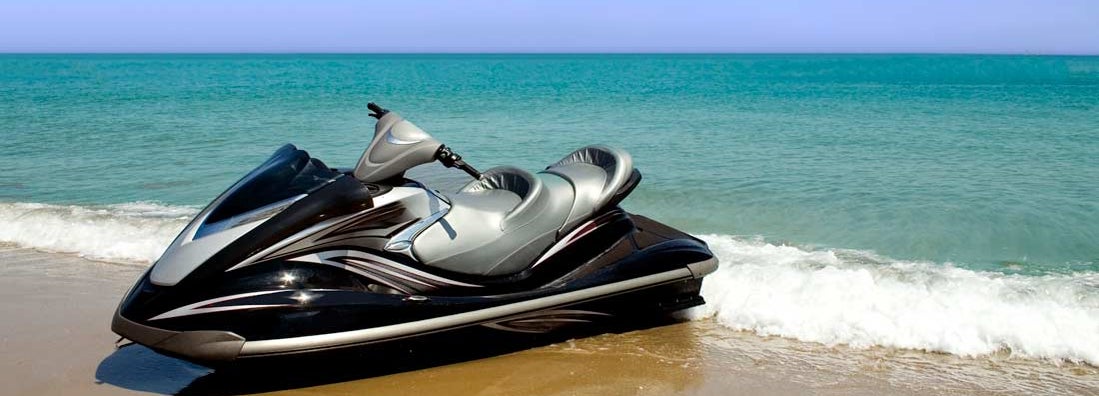Virginia PWC Insurance
Independent agents in Virginia shop multiple companies to get you the best price on pwc insurance.

Virginia is for lovers, and Virginia’s residents love their PWCs. If you own one of the many personal watercraft registered in this state, you may be wondering whether or not you need PWC insurance. While coverage is not required by the state, it can prove to be a worthwhile investment. With more than 46 rivers, 61 boat-worthy lakes and 112 miles of Atlantic coastline, Virginia has plenty of places for PWC owners to enjoy this pastime. It is a good idea to request and compare quotes on coverage for these vessels before taking to the water.
Use our independent agent matching system to find the best insurance plan in your area. You tell us what you’re looking for, and our technology will recommend the best agents for you. Any information you provide will be sent to only the agents you pick. We do not sell to third parties.
Virginia Boat and Personal Watercraft Facts, 2011
- In 2011, there were 242,473 registered boats in Virginia.
- Of these, approximately 10% are PWCs.
- Number of recorded boating accidents in the state: 121
- Of these, approximately 22% involved PWCs.
- Number of recorded boat and PWC-related injuries: 96
- Number of boat and PWC-related fatalities: 21
- Number of boat and PWC-related accidents involving property damage only: 35
- Cost of boat and PWC-related accidents: $1,198,292
- This averages to $9,903 per accident.
What Kinds of Vessels Are Considered Personal Watercraft?
A personal watercraft, commonly referred to as a PWC, is defined as a type of motorized boat that is designed in such a way that an operator stands, sits, or kneels on it, as opposed to sitting inside, as one would on a traditional boat. Some examples of popular PWC brand names include Jet Ski, Sea-Doo and WaveRunner. In many cases, people refer to types by the brand names associated with them, even if they are made by a different manufacturer.
PWCs come in the following four model types:
- Stand-up models: This is the original PWC type. They were first produced and marketed by Kawasaki as Jet-Skis and many people still refer to them by that name. Stand-up models continue to enjoy high sales but they tend to be a bit more difficult to operate and less stable on the water than the other model types. For this reason, it's a good idea to have medical payments coverage and property damage liability on these models.
- Sit-down models: These include the most popular of the PWC types. Sit-down models are more stable and easier to operate than their stand-up counterparts. Sea-Doos, manufactured by Bombardier, are the most commonly purchased sit-down models.
- Multi-person models: Multi-person PWCs are ideal for family outings as most allow for two to four passengers and, of all the PWCs types available, these offer the greatest stability on the water. The most commonly purchased brand is Wave Runner, a product of Yamaha.
- Submersible models: These sleek new model types are designed for showing off in the water. They are made to look like a dolphin and allow the operator to diver underneath the water’s surface, perform twists and turns and leap out of the water in a dramatic display of showmanship. Submersible models pose a higher risk of drowning, so it is important to have medical payments and liability coverage.
Virginia State Laws Pertaining to PWC Operation
The Virginia Department of Game and Inland Fisheries regulates PWC use on state waters. Some laws enforced by the NMSPD include the following:
- All PWC operators are required to have successfully completed a boating safety course and must carry their certification cards with them.
- PWC operators must be at least 14 years of age.
- PWC operators, passengers, and anyone being towed by a PWC must wear an approved personal flotation device; inflatables are prohibited.
- If the PWC is equipped with a lanyard-type engine cut-off switch, the lanyard must be attached to the operator’s clothing, person or PFD at all times.
- PWCs may not be used between sunset and sunrise.
- It is illegal to carry more passengers than the PWC is designed to accommodate.
- PWC operators must maintain no-wake operation when operating their vessel within 50-feet of docks, piers, boathouses, boat ramps, people in the water and vessels other than PWCs.
- If towing a water-skier, the rope must be not more than 50 feet in length.
Why Should VA Residents Purchase PWC Insurance?
If you financed the purchase of your watercraft, you will likely be required by your lenders to carry PWC insurance for the life of the loan. Otherwise, it's not legally required that you have that insurance coverage.
You may assume that your homeowners insurance will cover you if you are in an accident, and in a few cases, you may be able to receive sufficient compensation. However, the coverage afforded by homeowners insurance can be very limited and will not cover everything that a PWC insurance policy can. The best way to protect the investment you have made in your watercraft, as well as your personal finances if liability costs become an issue, is through the purchase of a PWC insurance policy.
What Kinds of Coverage Does PWC Insurance Offer?
There are many coverage options available with a PWC insurance policy. Some insurance companies will include all of these coverage types as part of a standard package, while others will include only liability coverage as a base and then require you to purchase each additional option you want as a separate rider. Coverage you can get includes:
- Liability coverage: This provides you with the funds necessary to compensate third-parties for bodily injuries and property loss if you are responsible for damages while operating your PWC. This coverage will also reimburse you for any court costs or legal fees you may accrue as the result of a covered event, up to the limits of your policy.
- Collision coverage: This provides compensation for necessary repairs or replacement of your PWC if it is damaged in an accident, regardless fault.
- Medical payments coverage: This provides coverage for any necessary medical care if you or your passengers are injured in a PWC accident for which you are at fault.
- Comprehensive coverage: This provides the funds needed for repairs or replacments if your PWC is lost or damaged while not in use. This includes damages caused by such things as severe weather, fire, falling objects, theft and vandalism.
- Uninsured and underinsured boater coverage: If you are in an accident caused by an uninsured or underinsured boater or with a hit-and-run boater, this coverage will compensate you for any property damage and medical costs for which you cannot collect funds from the third party. In Virginia, where boat insurance is not required, this coverage can be very important.
- Wreckage removal coverage: What many people discover too late is that if you cause an accident while operating your PWC, you are responsible for paying for the necessary wreckage removal and fuel-spill clean-up costs. This has the potential to be quite expensive, but this insurance option will cover the costs for you, up to your policy limits.
- Towing and assistance coverage: This will cover any related costs if your PWC becomes disabled while in the water and you need towing or assistance.
- Trailer and roadside assistance coverage: This will cover towing, assistance and trailer repairs if you experience problems on the road while transporting to your PWC to and from the water.
How Do You Find Affordable PWC Insurance Quotes?
Fortunately for Virginia residents, the cost of PWC insurance is kept lower than in other states, because watercraft operators in this state are required to take a boating safety course. When you request PWC insurance quotes from various companies, the cost of your particular policy will be calculated based on many factors. These include:
- The type of PWC you are insuring and its make, model and value
- Where and how often you use your watercraft
- Where and how you store your PWC when not in use
- Your age, gender and driving record.
Most policies can be purchased at a rate of about $1 day. In Virginia, where the winter months may not be favorable for PWC use, you may be able to save money by purchasing a seasonal policy. You may be able to further lower your policy rate by taking advantage of discounts offered by some insurance providers. Some companies offer rate reductions for such things as having multiple insurance policies with the same carrier or for opting for discounted billing methods. Be sure to ask about available discounts when requesting PWC insurance quotes.
Compare PWC Insurance Quotes Easily
If you want to be sure you are getting your PWC insurance at a great rate, you will need to do some comparison shopping. An independent agent in the Trusted Choice® network may be able to save you time and money by collecting a selection of rate quotes for you. These agents have offices throughout Virginia. Allow a local member agent to answer your insurance-related questions and help you compare the coverage offered by a variety of insurance companies.
Contact an agent in or near your Virginia neighborhood to learn more about your PWC insurance options and to start comparing quotes for this coverage.
